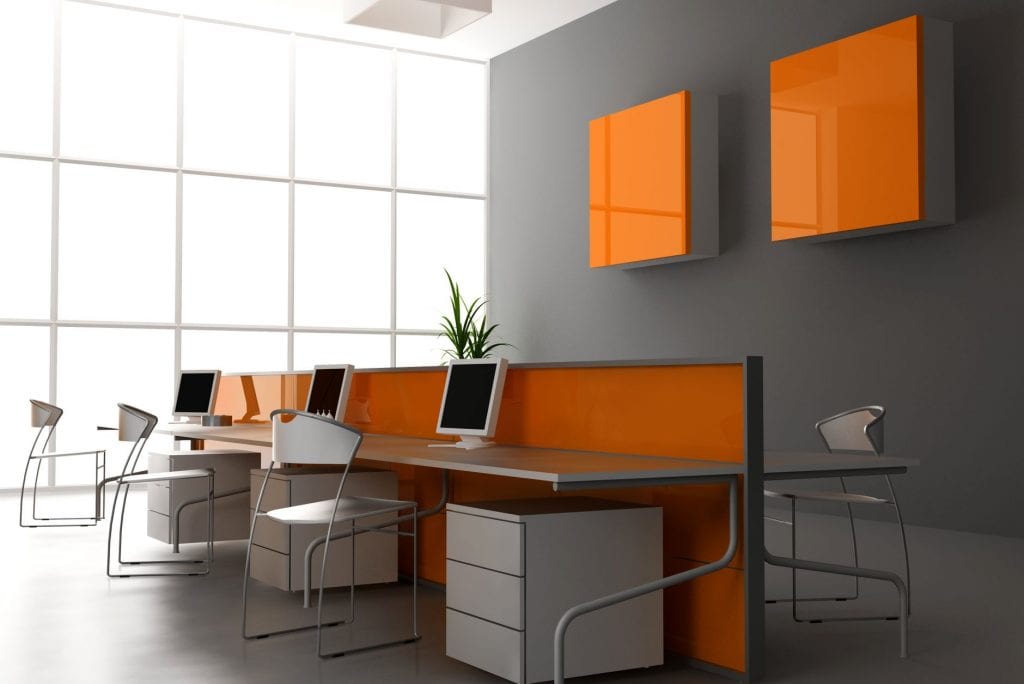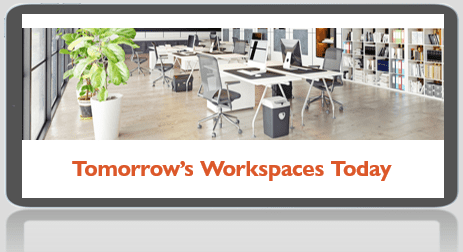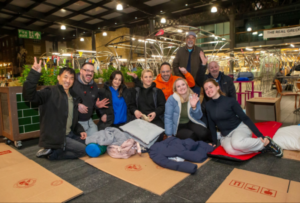Taking steps towards a circular office
For many organisations, the drive to minimise the impact of business on our wider environment has moved on from a ‘nice to have’ to a business imperative. This is not only in recognition of the cost and efficiency savings that can be achieved through sustainable ways of working but also in response to the expectations of customers and the talented staff seeking employment with more purposeful organisations.
Workplaces that are seeking to reduce their negative business impact need support from workplace service providers to deliver long term and meaningful change. Crown Workspace’s innovation and investment in this area can help organisations take very practical steps towards more circular business practices, achieving impressive financial, social and environmental outcomes.
So what is the circular economy?
Traditional business and consumer practices are based on the ‘make, use, dispose’ model which uses valuable resources and energy for very short periods and leads to the rapid and unsustainable depletion of our natural resources.
The circular economy initiative is a drive to change our business models to minimise the consumption of finite resources and move economic development into more sustainable and renewable business operations. This is achieved through designing out waste, extending the life of existing products and regenerating our natural systems.
There is a lot written about the circular economy and for those who wish to delve deeper, we would suggest a visit to the Ellen MacArthur Foundation.

Circular economy and the workplace
Many organisations now recognise that ‘business as usual’ is unsustainable and are making corporate commitments to better business practices. The workplace, and in particular the office environment, is a natural place to start because so many resources are used in their design and operation. If a circular mindset is applied to the workplace then, from design through to daily operation, significant and measurable differences can be achieved delivering impressive environmental and social outcomes.
From how you design the workplace, through to the procurement practices for office consumables, there are a growing number of alternatives to the ‘make – use- dispose’ model that should be considered to help the business achieve their circular aspirations.
So with the right commitment change can begin. It is helpful from a starting perspective to perhaps have an understanding of existing wastefulness, look at your organisation’s waste streams to see what can be eradicated or managed out. This could be something as simple as specifying reduced or take-back packaging or repairing items rather than throwing them away. From a longer-term perspective understanding planned business activity, (such as a move or refurbishment), and looking at procurement cycles and policies, can allow a more strategic approach to circular thinking to be introduced. There are an increasing amount of case studies for better practice, you can find some more ideas on resource-efficient business models here.
As a leading supplier of sustainable workplace services, Crown Workspace is well placed to support the aspiration of a “circular office”. We provide some key and practical initiatives that support those seeking better ways of operating and can help businesses achieve some quick wins.
Furnishing the circular office
In a move to a new office or the roll-out of agile working, traditional thinking has been ‘out with the old and in with the new’ when it comes to existing assets such as furniture. In 2011 research by WRAP found that only 14% of office furniture was reused, meaning that an estimated 1.8million office chairs and 1.2million office desks were sent to landfill each year. With such eminently reusable products, it’s no surprise that those moving towards a circular office often start here.
In our award-winning Renew Centre, a skilled team carry out remanufacturing and refurbishment of office furniture to meet our clients’ new designs and layouts. In this way, We provide clients with a sustainable, stylish and cost-effective alternative to new furniture, giving existing items a new lease of life at typically less than 70% the cost of new.
Whilst much of our work is supporting clients with planned office moves or refurbishment projects, many organisations are now making the circular approach business as usual. Embracing repair and refurbishment of existing office furniture as part of their day-to-day operations, they are extending the life of their assets at every opportunity. Likewise, they will supplement their existing furniture stock with quality used furniture to match their existing stock rather than continuously buying new.
Since 2011, over thousands of chairs, desks, tables, cabinets and other items of office furniture have had their life extended in the Renew Centre. Take a look at what can be achieved.
Reuse of redundant IT equipment
As with furniture, many items of IT and communications equipment are discarded well before their natural lifetime comes to an end. A software update or office refresh may lead to screens, desktop computers, laptops and other such items becoming redundant. Many businesses send these straight for destruction or as waste electrical and electronic equipment (WEEE) for recycling, without consideration to the best possible outcome for these products that could otherwise remain in use for many years.
We maximise the financial, environmental and social value of redundant IT whilst ensuring data security and legal compliance for our clients. Data is securely wiped from all data storing devices using specialist software certified by the National Cyber Security Centre and approved by Defence INFOSEC Security Centre. With our software solution exceeding the highest security specifications detailed in the HMG Infosec Standard No: 5 our clients, whose primary concern is usually security, have full confidence in the reuse of their redundant items.
As well as carrying out secure data eradication, our team of IT experts recondition components, upgrade memory (RAM), replace hard drive and graphics cards to be able to give a computer an upgrade and a new lease of life and to meet new user needs. Similarly, we can check, update and refresh communications and AV equipment, server room technology, screens and other IT consumables.
This approach has enabled us to extend the life of hundreds of items of IT equipment in the last two years and not only return these items to use but deliver cost and carbon savings to our clients.
Achieving a sustainable clearance
Inevitably, sometimes internal reuse is not viable – when a building is closing down or working practices have significantly changed. When reuse and refurbishment are not options, it is still possible to apply circular economy principles and achieve a sustainable clearance.
We can support clients with external reuse through our sustainable clearance services that enable donation, resale, recycling and recovery.
Purchasing for the circular office
A commitment to ‘circular thinking’ not only means extending the life of our existing assets but considering what and how we buy. From our sustainable clearances, Crown Workspace can offer clients quality reused office furniture and IT equipment through our retails channels Office Resale and IT Resale. Take a look at the excellent quality of these items which can be refurbished to suit specific needs. We only work with quality brands, meaning that clients can access the best quality office furniture at the fraction of the price of new.
Circular journey – it is just the start
We have been working with many other service providers and like-minded organisations that are helping to drive this agenda. We recognise that part of delivering business change is knowledge and experience. Throughout the coming months, we will be collating information on more practical steps that can be taken in the workplace and will be sharing them to help support our clients further in this area.

Case studies: Meeting the needs of organisations of all sizes
This circular approach can be adopted by organisations of all sizes as our experience has shown:
In a project with Regent Street Management Direct, we worked to a sustainable brief when refurbishing the new facilities management team office. We not only reused materials such as ceiling tiles wherever possible in the refurbishment process but also provided 19 remanufactured and refurbished office desks, pedestals and executive chairs, as well as 9 office cupboards and furniture for 3 meeting rooms. This central London Property Management company achieved a carbon saving of nearly 8 CO2 (e) and was delighted with how their sustainable commitments were realised.
On a much larger scale, when we delivered the refurbishment of 20, 000m2 of office space at Tesco head office, we incorporated the remanufacturing of over 2,400 items of existing furniture, to support the transition to agile working. This saved the UK’s leading grocery retailer over £315,000 and 100 tonnes of CO2 (e).
Related stories
Scents can facilitate a way to immediately engage with employees as soon as they enter the workspace. So which scents should you be using in your office? Here are my top three:
Crown Workspace are proud to announce that we have self-certified to PAS 2060, achieving carbon neutrality for our moves and change services from 2022 onwards.
Last Friday, nine members of our Crown Workspace team left their beds behind and spent the night in Crown boxes in Central London as part of the YMCA’s SleepEasy Event. Read more now!





























